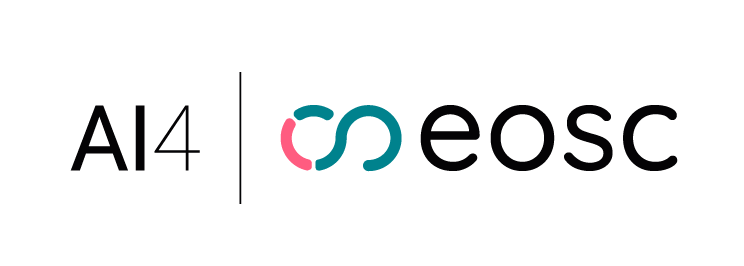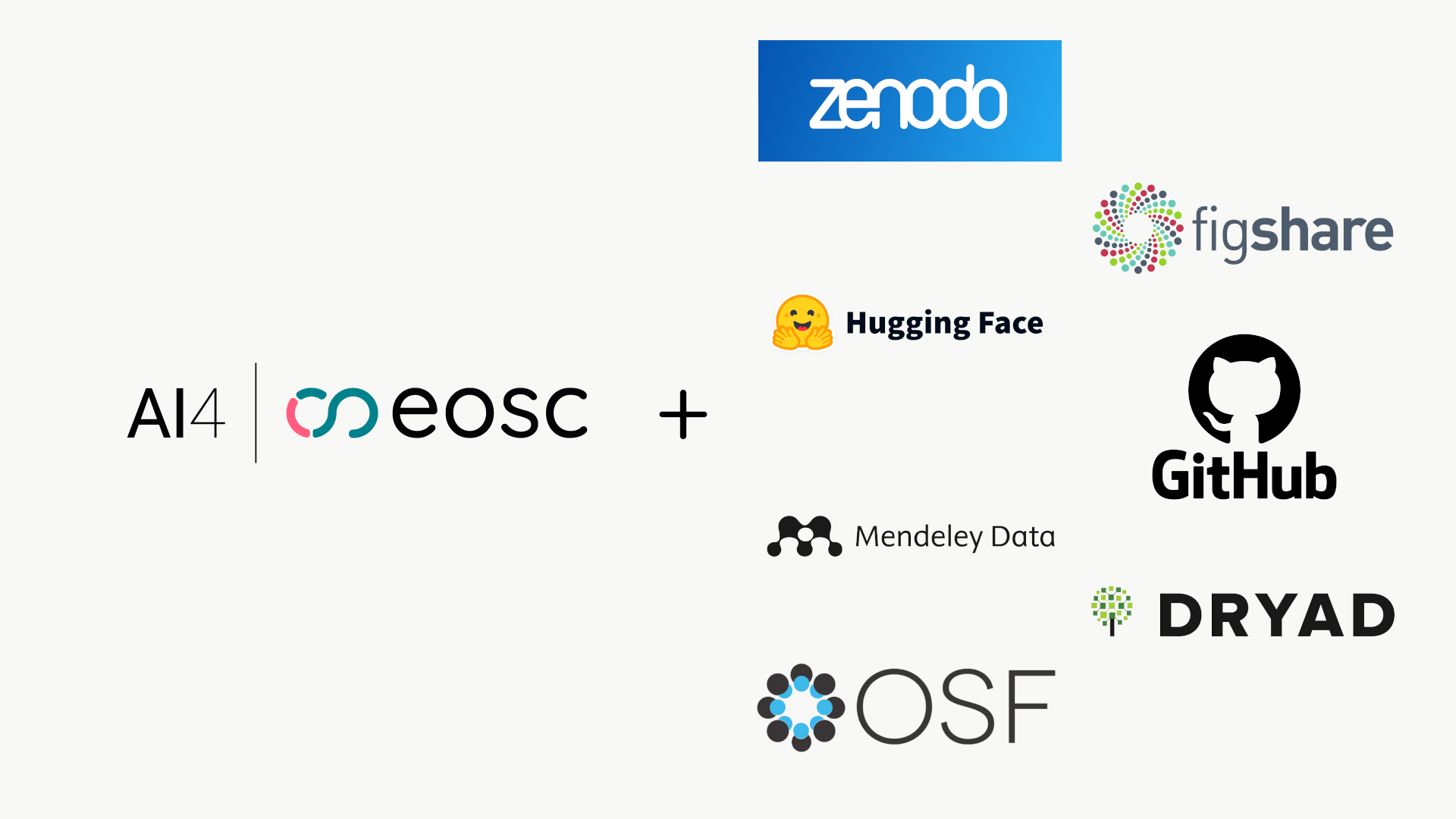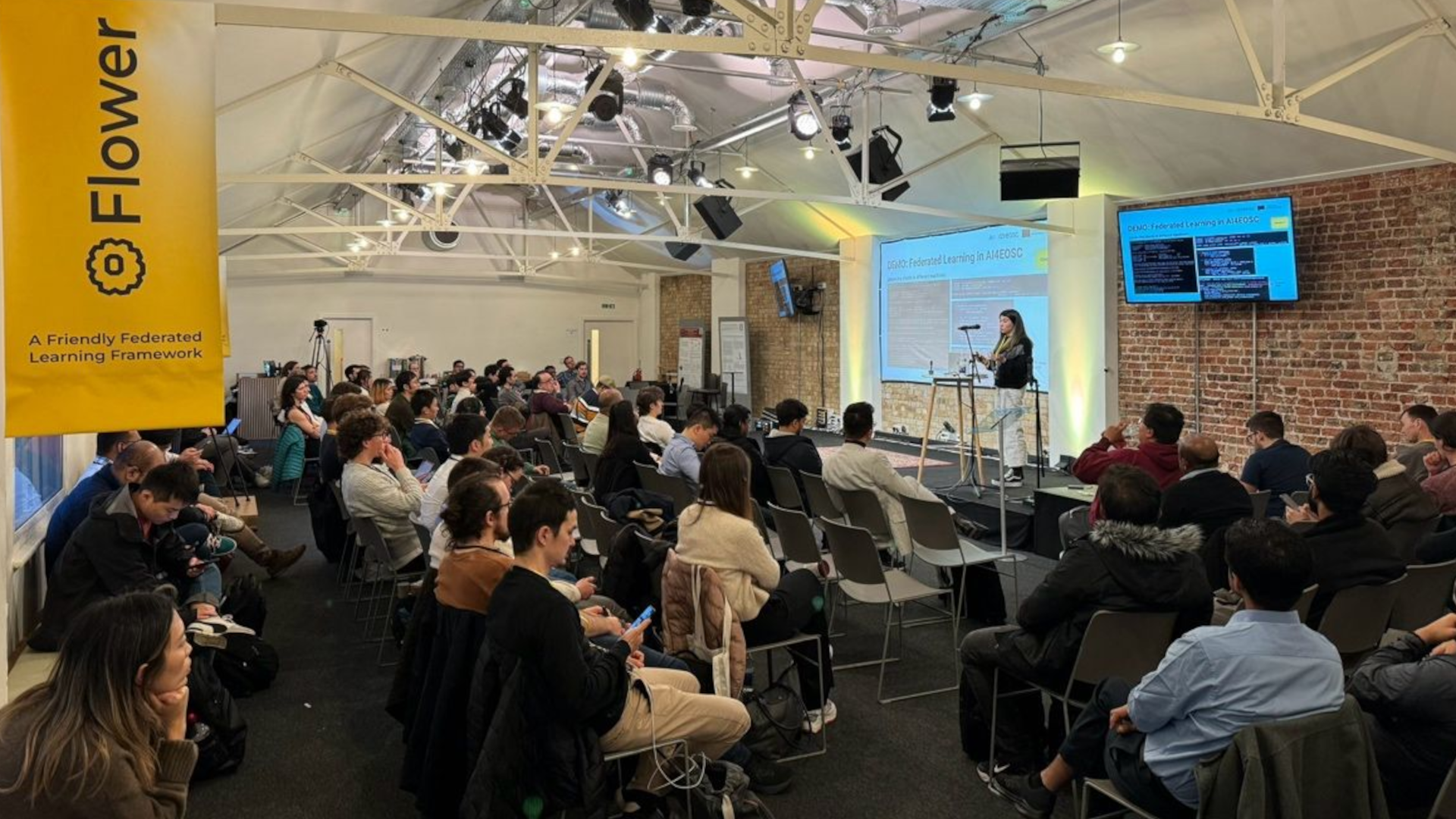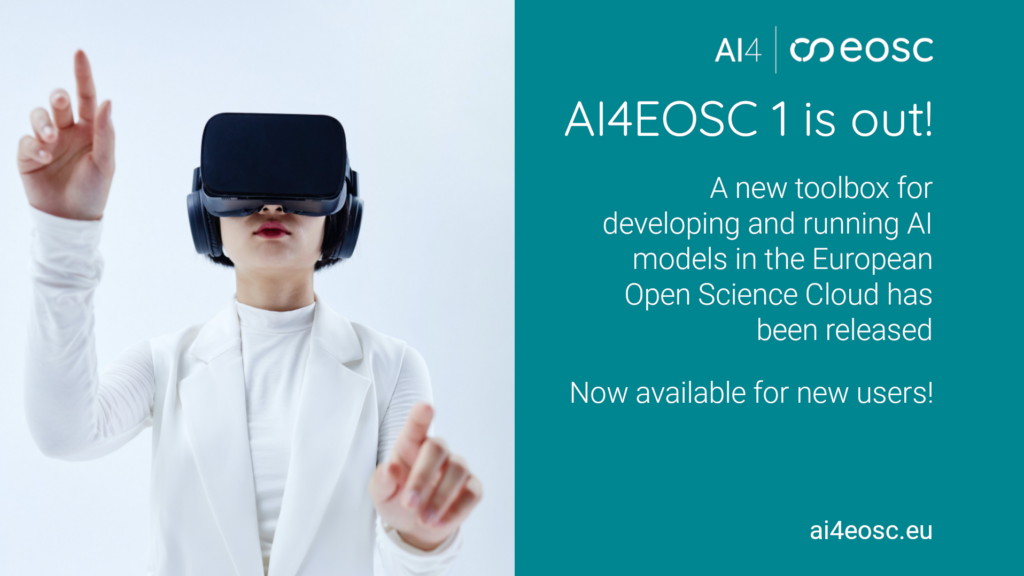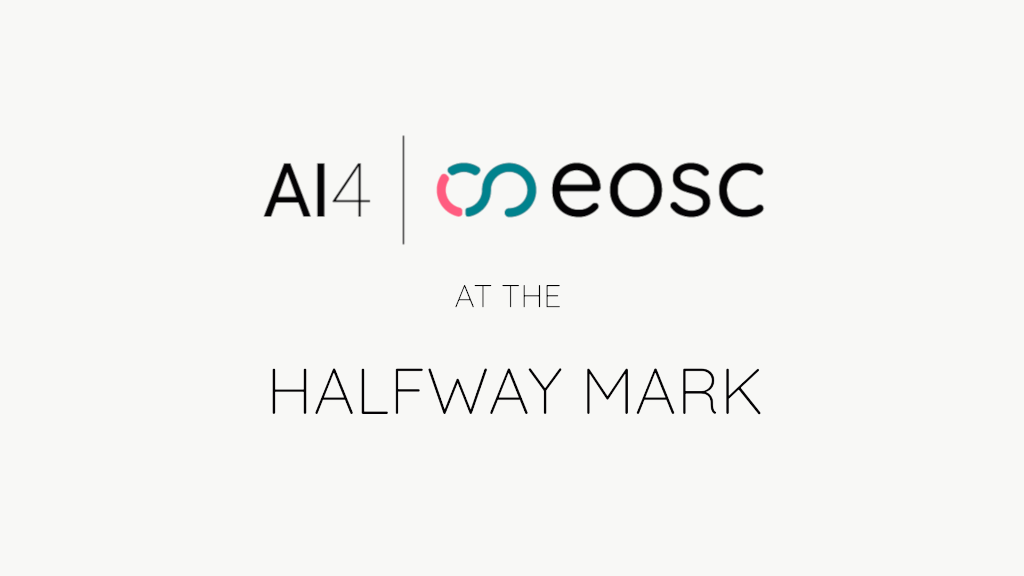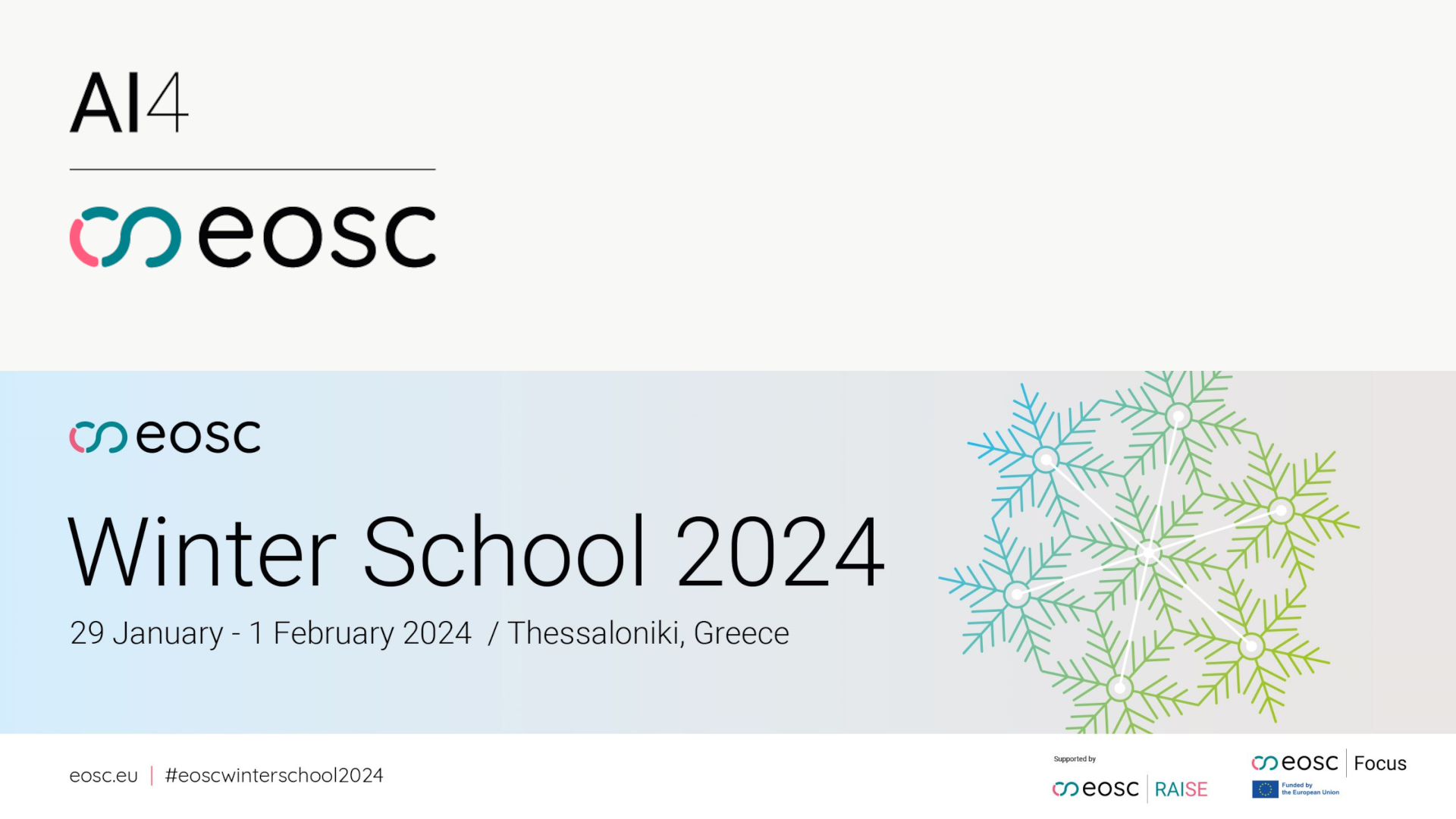AI4EOSC Platform launches beta LLM4EOSC API service: Open call for preview access
The AI4EOSC platform is excited to announce the deployment of our beta LLM4EOSC (Large Language Models for the EOSC) API service. This innovative service is now available for a limited number of users in the European Open Science Cloud (EOSC) community to evaluate and provide feedback. The beta LLM4EOSC API service offers powerful capabilities for natural language processing and understanding, enabling researchers and scientists to enhance their workflows and projects. By leveraging advanced AI technologies, users can perform tasks such as text generation, summarization, question answering, and more, all within the context of the EOSC. Open call for preview access To facilitate a thorough evaluation of the LLM4EOSC API service within the EOSC environment, we are launching an open call for preview access. Interested users from the EOSC community are invited to request access on a limited basis. This opportunity will allow users to explore the potential of LLM APIs…
AI4EOSC breakthroughs in processing research data with AI presented at EGI2024
The AI4EOSC project presented its significant advancements in the processing of research data with artificial intelligence and machine learning during the EGI conference 2024, held in the Italian city of Lecce from September 30 to October 4. The project coordinator Álvaro López García presented AI4EOSC during a session that also featured updates on topics such as MLOps (by Valentin Kozlov), evaluation of open source LLMs with MLflow (by Lisana Berberi), a comprehensive comparison of federated learning (FL) frameworks (by Khadijeh Alibabaei) and the implementation of the AI4EOSC distributed platform (by Saúl Fernández). AI4EOSC was represented in this important event with numerous contributions, including a booth dedicated to the project, along with numerous talks, four demos, and a poster. Regarding the demonstrations, Fernando Aguilar showcased a tool for evaluating the FAIR principles, called FAIR EVA. Judith Sáinz-Pardo presented the implementation of secure personalized federated learning within the AI4EOSC platform, demonstrating two use cases: one related to…
‘Making Federated Learning Accessible to Scientists’ – AI4EOSC at the 12th ACM Workshop on Information Hiding and Multimedia Security
Researchers from the AI4EOSC project presented a paper entitled “Making Federated Learning Accessible to Scientists: The AI4EOSC Approach” during the 12th ACM Workshop on Information Hiding and Multimedia Security (IH&MMSec), one of the prime events in the area of multimedia security, held in Baiona, Spain, on June 24-26, 2024. The presentation delved on the implementation of a federated learning system based on the Flower framework that allows users to exploit this technique within the AI4EOSC platform, together with the difficulties encountered in the process and how they have been solved. Besides, it explored different additional extensions developed (available for use on the platform, such as client authentication), as well as an example applied to a medical imaging case, concluding with an scenario of intermittent clients in medical imaging. The paper, authored by researchers from CSIC, IISAS and KIT, and presented by CSIC’s Judith Sáinz-Pardo, can be consulted in open access…
New features available in the dashboard! Automatic download and synchronisation of data from open repositories
AI4EOSC Platform users can now automatically synchronise data in their nextcloud instances (obtained from different providers, such as Zenodo, HuggingFace, DataOne, etc) after creating a new deployment using the different IDEs available (JupyterLab and Visual Studio Code). First, users must enter their RCLONE credentials to synchronise the deployment with their nextcloud instance, and then they will have the option of downloading data from external sources, including Zenodo, HuggingFace, Figshare, Github, Dryad, Open Science Framework (OSF), and Mendeley Data among others. For all these repositories, users will be able to download and synchronise data by simply entering the DOI. Furthermore, in the case of Zenodo, they can use the embedded search functionality available in the dashboard, in order to search data from any community. Thus, users will be able to search for the type of data they need to develop their model and select from a wide range of options available…
The implementation of the Strategic Research and Innovation Agenda, at the centre of the latest EOSC meeting
The implementation of the European Open Science Cloud (EOSC) Strategic Research and Innovation Agenda (SRIA) was the focus of the coordination meeting of EOSC-related projects funded under the Horizon Europe call. In that context, deepening the collaborations between EOSC-related projects, the EOSC Association and the European Commission was widely discussed during the meeting, held in Brussels on 20-21 June, 2024. The AI4EOSC project was presented by PSNC’s Marcin Plociennik during the Federation of services and core components of EOSC and integration of project outcomes session. The project positioning was taken as starting point for further discussion. During the meeting debate arose around achieving operational EOSC federation, Users and Resource environments in thematic communities and putting the FAIR principles in practice among many others. It also featured presentations from the new EOSC projects and the EOSC EU Node. The relation of the EOSC and EU Data Spaces had its own dedicated…
The advances on MLOps and the AI4EOSC Platform featured at the Helmholtz AI Conference
The advances on MLOps and drift monitoring, federated learning studies, the AI4EOSC platform and the project’s Automated Thermography use case were presented by KIT scientists during the Helmholtz AI conference, held in Düsseldorf, Germany, on June 12-14. More than 200 scientists from the Helmholtz Association met in Düsseldorf, where two unconference events were also organised by KIT researchers from the AI4EOSC consortium — one on MLOPs and another one on federated learning. The architecture and features of the AI4EOSC platform triggered a high interest and stimulated cross-project networking during the conference, which presented a good opportunity to discuss, get insights and showcase AI related research. The AI4EOSC sister-project, iMagine, was also showcased during the conference. This project makes active use of the computing resources deployed with AI4OS. Helmholtz scientists spent two fruitful days on discussing foundation models, their challenges and advantages, application for science and needed infrastructures. The keynote talks…
Showcasing AI4EOSC at the world’s largest conference on Federated Learning
The AI4EOSC project was showcased at the world's largest conference on Federated Learning (FL), the Flower AI Summit 2024, held in London on March 14-15. The conference featured not only the advancements within Federated Learning but also the collaborative efforts driving innovation across the AI landscape and different applications. On the first day, dedicated to AI research, we introduced the European Open Science Cloud (EOSC) ecosystem, presented the AI4EOSC project, and talked about how we have implemented Federated Learning in the AI4EOSC platform, whose first release, AI4EOSC 1, took place earlier this month. During her talk (“Federated AI in the European Open Science Cloud”) our colleague Judith Sáinz-Pardo Díaz (CSIC) seized the opportunity to present some modifications that have been made from AI4EOSC to the Flower library in order to allow client authentication with the FL server and a secret management system for this purpose, in order to add an…
AI4EOSC 1 is out! A new toolbox for developing and running AI models in the EOSC
AI4EOSC, a cutting-edge initiative at the intersection of Artificial Intelligence (AI) and the European Open Science Cloud (EOSC), is releasing the first version of the AI4EOSC platform and the AI4OS software stack which powers it. AI4EOSC provides a user-friendly workbench and toolbox for developing and running AI models, tightly integrated with the EOSC, now available for new users. A series of webinars have been organised in relation to the first release. They cover different topics, from AI and applications such as image processing to federated learning. The AI4EOSC platform is a cloud-based system for the development of AI applications and models, integrated in the EOSC and powered by the AI4OS software stack. The main new features in the release include: Flexible and transparent access to cloud resources, such as GPUs, CPUs and storage; Integrated support for federated learning training on distributed data Availability of MLOps tools for model monitoring and drift detection Inference platform…
AI4EOSC meets the halfway mark: successes, achievements and goals
The release of the first version of the AI4EOSC platform and the next call for external users will mark the project's halfway milestone in February 2024. The three use cases integrated in the project –agrometeorology, integrated plant protection and thermography– are already using the platform to exploit their data to the fullest and develop artificial intelligence applications according to their needs. Specifically, the platform provides users with their necessary computational requirements, such as memory disk, CPU cores and GPUs. Throughout the first half of the project (funded by the European Union’s Horizon Europe call), several updates have been made to the architecture of the platform, which follows the C4 interactive model and is openly available for consultation. Although the platform has not been launched to the general public yet, it already has dozens of jobs running, including developers and use cases, and a total of 28 GPUs are in use.…
AI4EOSC at the EOSC Winter School 2024
Organised by the EOSC Association, the EOSC Focus project and other EOSC-related initiatives, the school unfolded in Greece, 29th of January-1st of February, to provide opportunity to collaborate and enhance technical expertise across diverse Opportunity Areas (OAs). The Winter School was organised to enhance collaboration and integration among EOSC-related Horizon Europe projects, and synchronize with the deliverables of the EOSC-A Task Forces. The Opportunity Areas included:OA1 Persistent Identifiers (PIDs) OA2 Metadata, Ontologies & Interoperability OA3 FAIR Assessment & Alignment OA4 User & Resource Environments OA5 Skills, Training, Rewards, Recognition & Upskilling OA6 Open Scholarly Communication In addition, the Sustainable Pathways to Impact track was organized to progress integration of the developments of HE INFRAEOSC projects into the EOSC landscape monitoring activities. The AI4EOSC representatives (Marcin Plociennik, Amanda Calatrava Arroyo and Fernando Aguilar) took active tole in the sessions of the OA3, OA4 and OA2. Furthermore, the AI4EOSC exploitation and KER management was taken as a reference example during…
